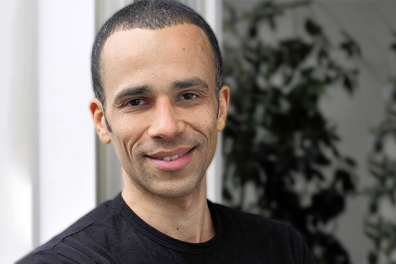Kofi Yakpo's lecture series
The sessions will take place at the Pôle des langues et civilisations (65 rue des Grands Moulins, 75013 Paris) in room 5.24 at 10am.
Admission free, subject to availability.

Social factors in language contact
June 2, 2022
Many see social factors as the most important determinants of the outcomes of language contact. Yet they are among the least theorized causes of linguistic change. Approaches either single out a specific factor without identifying its place in the bigger picture (e.g. "network density" in Trudgill 2011; or "demography" in Lupyan & Dale 2010), or are vague (e.g. "intense cultural pressure" in Thomason & Kaufman 1988). They fail to identify micro-, meso- and macro-social features and parameters and their causal relations with each other and therefore do not provide a structural analysis of social systems in determining contact outcomes. In this lecture, I will attempt to develop a multi-layered view of social factors in language contact, focusing on demography and socio-economic stratification, two factors that appear to be particularly relevant.
Outcomes of prosodic contact
June 3, 2022
There is a widespread tendency to see tone as a crosslinguistically marked feature that gets lost in language contact (e.g. Salmons 1992; McWhorter 1998). Recent comparative work on the prosody of Afro-European contact varieties (i.e. creoles, pidgins, and nativized European languages in Africa and the Americas) shows no evidence that stress trumps tone (Bordal Steien & Yakpo 2020). Instead, Afro-European contact varieties are found along a continuum of prosodic systems ranging from tone to stress to mixed systems incorporating both. Following up on earlier research (e.g. Mintz 1971; Faraclas 2007), I discuss the macro-factors of socio-economic structure, demographic distribution and ideological superstructure in prosodic contact. Complemented by linguistic-typological factors, these have driven the outcomes of Afro-European prosodic contact. The fate of tone in Afro- European contact varieties underlines the need for caution, nuance and detailed analysis instead of broad claims relating to simplification in language contact and creolization
Areal perspectives on creole evolution
June 13, 2022
Decade-long disputes about the ontological nature of creoles have diverted resources and attention from a more pressing question: How do language families evolve and differentiate across geographic, functional-linguistic, and diachronic space when unfettered by standardization? The richly documented socio-history of creoles and abundant linguistic data hold some of the answers. I will show how the English-lexifier creoles of the Atlantic basin have been fashioned by migrations of founder populations, genealogical splits, acquisition by multilingual populations and language shift, interlectal cross-diffusion, and structural convergence with adstrate, substrate, and superstrate languages. Drawing on research on causatives (Yakpo 2017a), object pronouns (Yakpo 2019a), and copulas (Yakpo 2019b), I show how an areal perspective on creole evolution combining geography, socio-history, and linguistic analysis can inform our understanding of contact and change in the absence of institutional language engineering.
Multilingual language contact
June 14, 2022
Research on language change has privileged neat approaches: genetic over areal relations, internal over external causes, a discrete over a fuzzy notion of linguistic boundaries, and monocausal over multicausal explanations. Suriname in the South American Guianas region epitomizes the characteristic messiness of linguistic ecologies (e.g. Migge & Léglise 2013; Yakpo & Muysken 2017). We find functionally specialized, (a)symmetrical interactions between languages; plurilingual codeswitching and multidirectional transfer lead to simultaneous borrowing and imposition and blended structures. The languages in contact in Suriname are highly diverse and include Afro- European Creoles, Indo-European, Indic, Austronesian, Sinitic, Arawakan, and Cariban. We find contact outcomes like creolization, koineization, nativization of colonial languages, language shift and death next to each other. Drawing on recent work, (Yakpo 2017b; 2017c), I will discuss how social and typological factors drive language contact, change and convergence in a type of complex ecology also found in other parts of the world (e.g. West Africa, Indonesia, India, South East Asia, Melanesia)